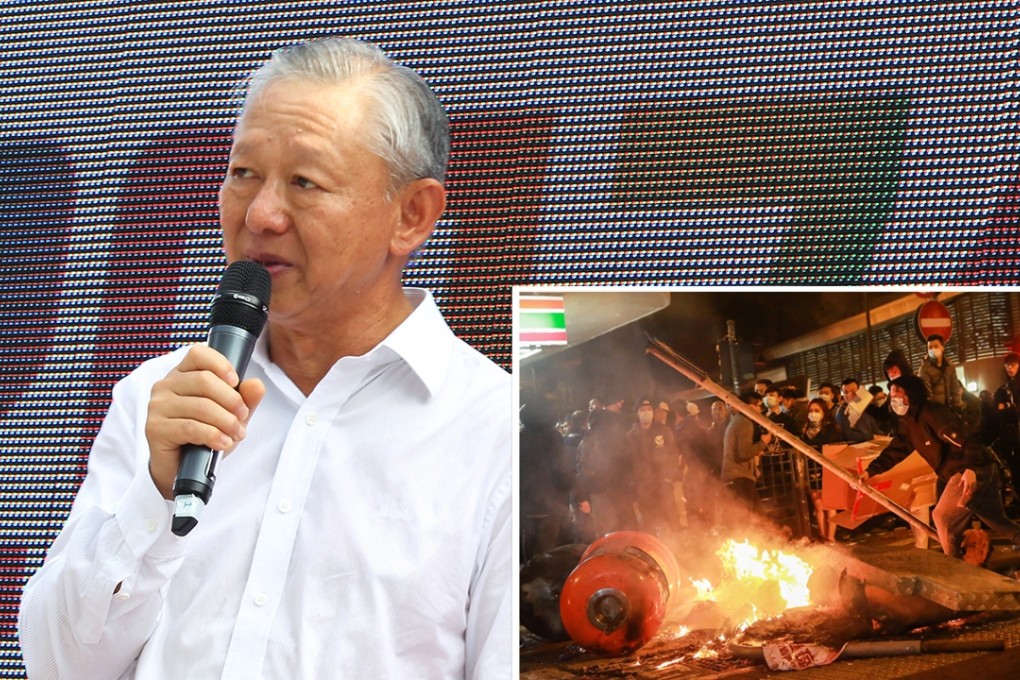Former Hong Kong security chief condemns young ‘beasts’ of Mong Kok riot as losing ‘their sense of reason’
Ambrose Lee Siu-kwong claims the ideals of society’s future leaders are ‘seriously contaminated’ when using violent means

A former Hong Kong security minister yesterday described young people involved in last week’s Mong Kok riot as “beasts”, hours before the city’s government rejected calls for an independent inquiry into the violence and the police response.
That was followed by a police U-turn in the evening, as Commissioner Stephen Lo Wai-chung appointed his deputy in charge of management, Alfred Chau Kwok-leung, to lead the force’s own review of its response to the riot.
The twist came after the Post reported on Sunday that Lo intended to pick operations director Alan Lau Yip-shing for the job, raising conflict-of-interest concerns that the man who made most of the calls that night would be investigating himself.
READ MORE: Beijing’s top official in Hong Kong brands Mong Kok rioters ‘radical separatists inclined to terrorism’
About 130 people, including 90 police officers, were injured in the unrest that broke out on the night of February 8 and continued into the next morning.
At least 65 people were arrested, with about 40 charged with rioting or taking part in an unlawful assembly.
Former security chief Ambrose Lee Siu-kwong, a local deputy to the national legislature, joined the chorus of condemnation against the rioters a day after Beijing’s liaison office director, Zhang Xiaoming, branded them “radical separatists”, putting them in a similar category to separatists in the Tibet and Xinjiang regions.
On a radio show yesterday, Lee spoke of his shock at protesters hurling bricks and other objects at an injured officer. Attacking “a dog lying on the ground” would be unconscionable to many, much less attacking a person, Lee said, adding that it was “like you have lost your conscience and become like a beast”.